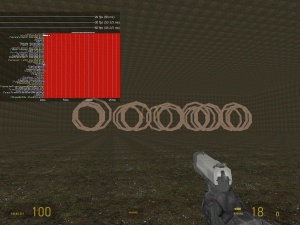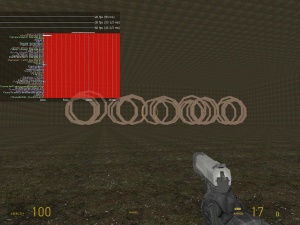Talk:Func lod: Difference between revisions
Jump to navigation
Jump to search
Stoopdapoop (talk | contribs) |
m (Fixed images by request) |
||
| Line 5: | Line 5: | ||
::I've found that the func lod renders only slightly slower than func_detail, but func_lod counts as a dynamic entity, opposed to a static one like func_detail | ::I've found that the func lod renders only slightly slower than func_detail, but func_lod counts as a dynamic entity, opposed to a static one like func_detail | ||
[[ | [[Image:Func_detail.jpg|thumb|300px|func_detail]] | ||
[[ | [[Image:Func_lod.jpg|thumb|300px|func_lod]] | ||
--[[User:Stoopdapoop|Stoopdapoop]] 07:39, 22 May 2010 (UTC) | --[[User:Stoopdapoop|Stoopdapoop]] 07:39, 22 May 2010 (UTC) | ||
Latest revision as of 21:34, 21 February 2011
When to Use?
Wouldn't this object be useful even for smaller geometry that is visible from a very large distance? I'm curious to know how much, exactly, the additional cost of calculating whether or not it renders is and what the threshold required for using this object typically is. -Corion 23:19, 10 August 2009 (UTC)
- You could use func_lod with small details in a small area, like brush objects protuding from a wall, which are not essential for gameplay from larger distances. As far as i know, since the point from which fading is calculated is the center of all the brushes in the entity, having a series of brushes in a large area tied to one func_lod will cause nearer brushes to fade out faster than you would like, so you with caution. Solokiller 10:51, 11 August 2009 (UTC)
- I've found that the func lod renders only slightly slower than func_detail, but func_lod counts as a dynamic entity, opposed to a static one like func_detail
--Stoopdapoop 07:39, 22 May 2010 (UTC)

